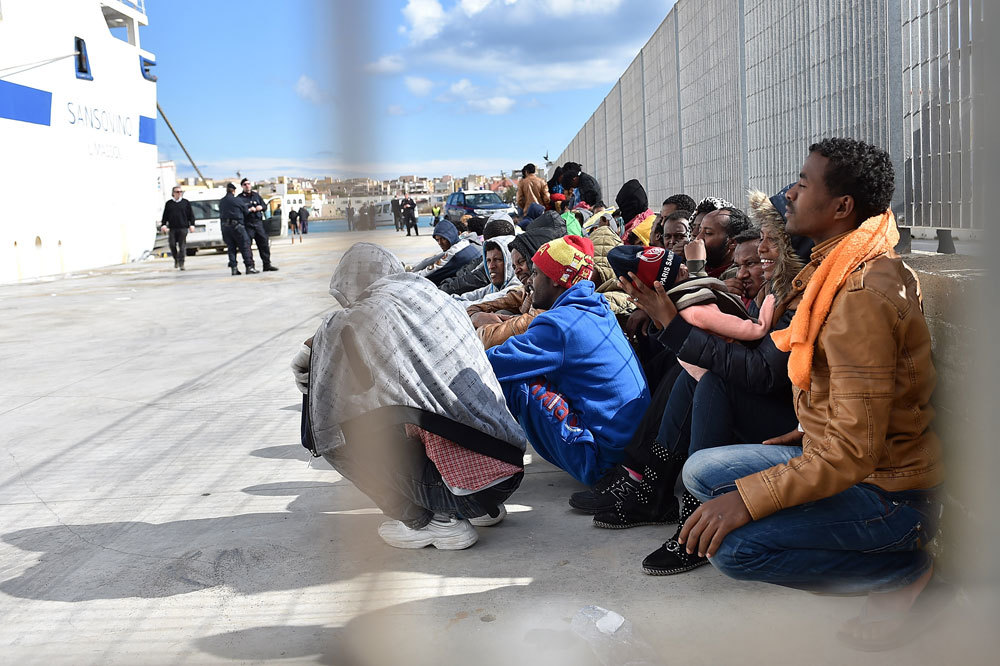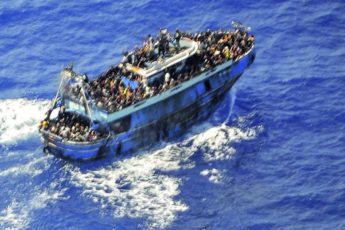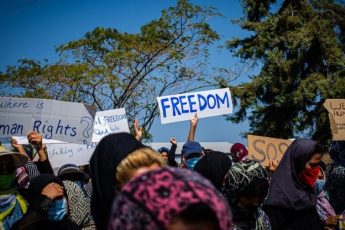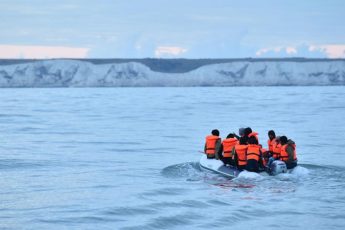
by TRANSNATIONAL MIGRANTS COORDINATION
Despite the flaunted collaboration between Italian Prime Minister Giorgia Meloni and Ursula Von der Leyen to make deals with Tunisia to keep migrants out of Europe, migrant men and women stubbornly continue to defy Europe’s border regime and slip through its meshes. For days, dozens of boats have been crossing the Mediterranean Sea with a cargo of hope and desire to improve the living conditions of thousands of men, women, and children. NGO ships, although opposed by the Italian government, do not stop rescuing boats in distress arriving from Sfax. The European response to this great migrants’ movement is the crowding of the Lampedusa reception center, where, as the migrants themselves have said, they are treated like «animals», in spaces covered with garbage and lacking cots where to sleep. While the earthquake in Morocco and the flooding in Libya produced thousands of deaths and further worsened the living conditions of many men and women, Meloni and Von der Leyen have rushed to Lampedusa with the aim of discussing the release of EU funds intended for Tunisia. The aim is to enlist new guardians in North Africa who can perform the task that Erdogan exercises just to the east. The convergence between Meloni and Von der Leyen depends in part on the urgency of the moment and mutual convenience in view of the upcoming European elections. But it also shows a more general convergence that has taken place in recent years between right-wingers and European migration policies, in the shadow of continuous “crises” when it comes to migrants.
Although the idea of funding an authoritarian country where migrants are systematically deported to the desert areas of the Maghreb turns the noses up at some components of the European Commission, in fact no one in Europe talks about reception and relocation anymore. The rhetoric of walls, rejections, repatriations, but also explicit racism and the invocation of wars of civilizations are now the only currency circulating. The rise of right-wingers and the war in Ukraine, however, have blown away the hypocrisy that drove the discussion on migration in Europe in recent years. Indeed, despite the election-ending clashes, a de facto consensus has been formed to legitimize the militarization of borders and the speeding up of the sorting of asylum seekers near the borders, if not in international waters or directly in countries of transit and origin.
If European states argue among themselves, as we see in the recent tensions between Italy, France, and Germany, it is because they all agree on these principles, but unfortunately for them, they do not work. They don’t work because migrants don’t stop and because repatriations – the numbers prove it well – are impossible. The idea that hundreds of thousands of migrants have to acquiesce to the labor force selection policies promoted by an assembly of few conflicting states cannot work.
The result is well known: thousands die at sea, while most of those who arrive in Italy as in the rest of Europe – despite Meloni’s plan to multiply the number of Permanent Centers for Repatriation (CPR) – simply remain “irregular” for a long time and therefore unable to access contracted work, benefits, services, education. The publicly condemned “illegality” is, in fact, convenient when one considers the lack of labor in sectors crucial to the European economy, confirmed by the same decrees or laws (such as the Cutro Decree or the Loi Darmanin) that while providing limitations on the right to asylum or special protection, establish quotas of migrants entitled to enter Europe according to market demand. But it is not just about numbers. The border regime, the programmed policy of deaths at sea, the obstacles placed on rescue ships, the living conditions in reception centers, the lack of access to housing, services and health care, the exploitation and blackmail of residence permits define the living conditions of migrant men and women in Europe. By defining the conditions of millions of working men and women in Europe, the conditions imposed on migrants help define the power relations that affect the labor market as a whole and the conditions of reproduction for all. Therefore, the struggle for documents must go together with the struggle against exploitation, the struggle against unsustainable living conditions in reception centers, must also consider the struggle for freedom of movement and against racist and patriarchal violence. The Transnational Social Strike meeting to be held in Bologna between October 27th and 29th will be an opportunity to discuss these different aspects. The daily movements of and by migrants are now key components of a common struggle to overthrow the reproductive conditions of our lives. You are all invited to participate!





